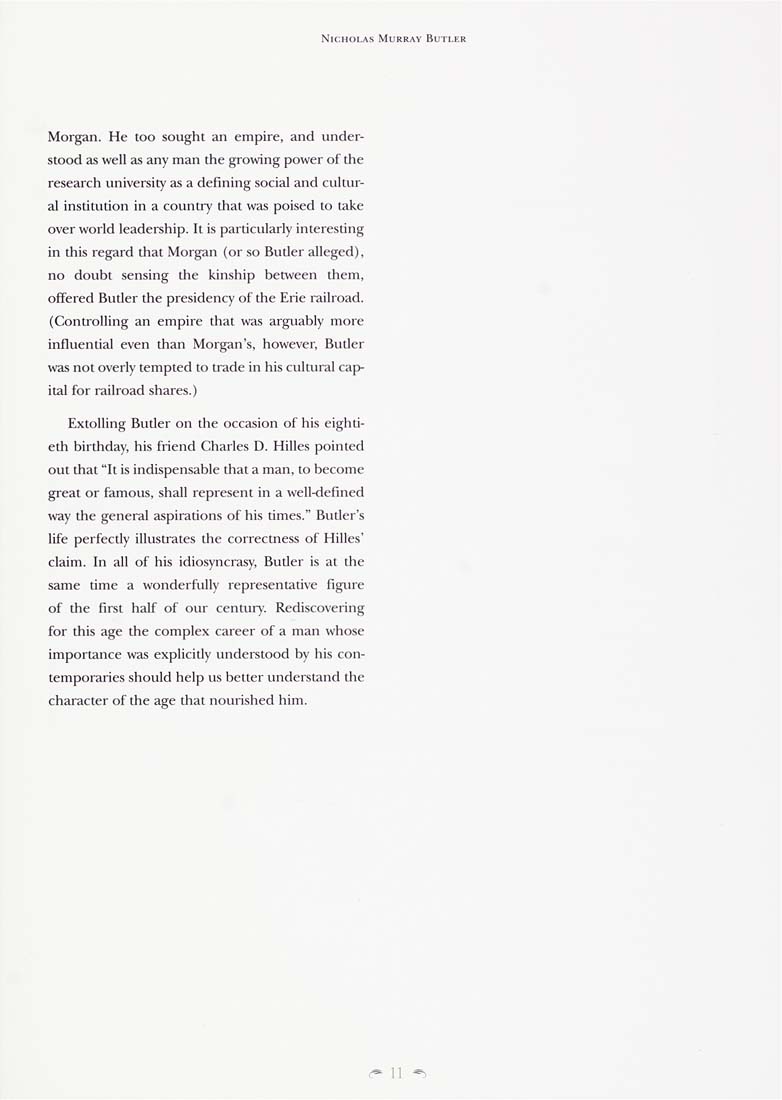Columbia Library columns (v.44(1995))
(New York : Friends of the Columbia Libraries. )
|
||
|
|
|
|
| v.44,no.2(1995:Autumn): Page 11 |

Nicholas Murray Butler Morgan. He too sought an empire, and under¬ stood as well as any man the growing power of the research university as a defining social and cultur¬ al institution in a country that was poised to take over world leadership. It is particularly interesting in this regard that Morgan (or so Buder alleged), no doubt sensing the kinship between them, offered Butler the presidency of the Erie railroad. (Controlling an empire that was arguably more influential even than Morgan's, however, Butier was not overly tempted to trade in his cultural cap¬ ital for railroad shares.) Extolling Butler on the occasion of his eighti¬ eth birthday, his friend Charles D. Hilles pointed out that "It is indispensable that a man, to become great or famous, shall represent in a well-defined way the general aspirations of his times." Butier's life perfectly illustrates the correctness of Hilles' claim. In all of his idiosyncrasy, Butier is at the same time a wonderfully representative figure of the first half of our century. Rediscovering for this age the complex career of a man whose importance was explicitly understood by his con¬ temporaries should help us better understand the character of the age that nourished him. c^ 11 ^ |
| v.44,no.2(1995:Autumn): Page 11 |







